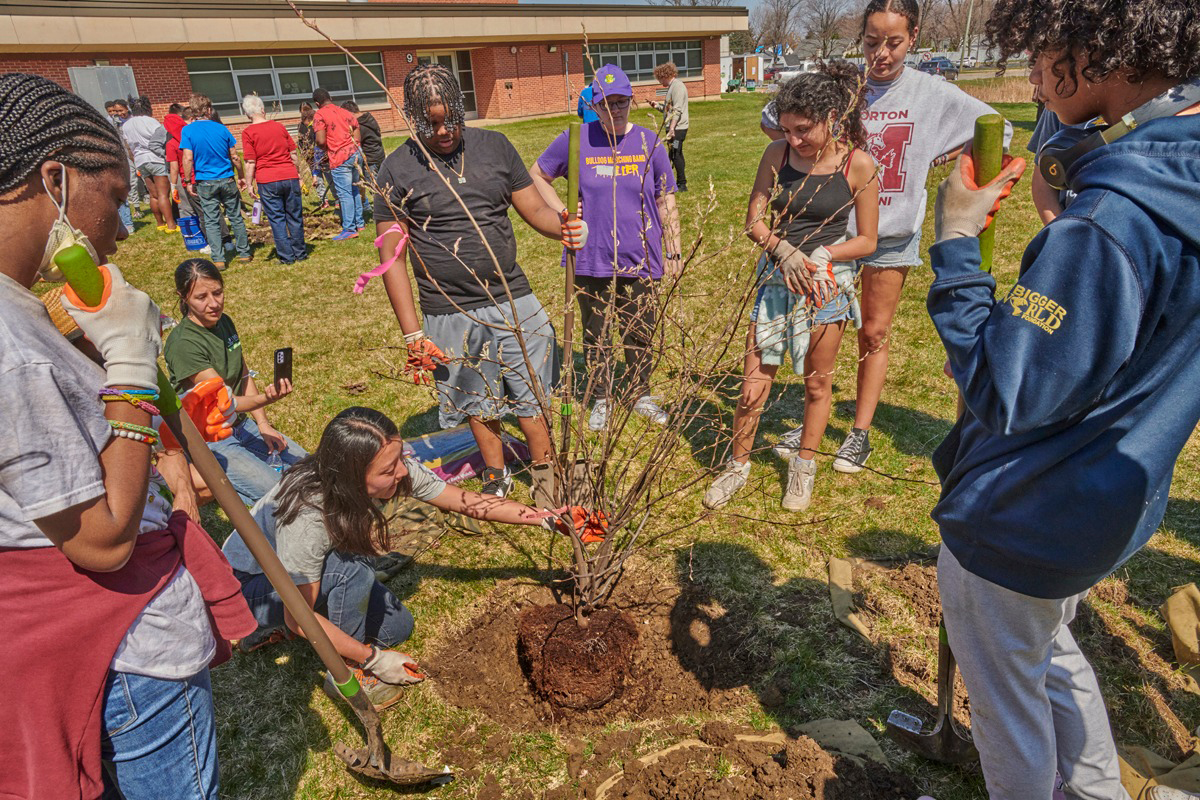The Morton Arboretum awarded historic $15 million
-
Country
United States of America -
Region
North America -
Workstream
Saving Plants -
Topic
Tree Conservation -
Type
Press Release -
Source
BGCI Member
News published: 21 September 2023
The Morton Arboretum in Lisle, Ill., announced it will receive $15 million in federal funding from the U.S. Forest Service through the Inflation Reduction Act (IRA) to expand and improve the tree canopy in disadvantaged communities in Illinois. The funding is part of a historic $1 billion investment to boost the urban tree cover in communities nationwide. The federal grant funding the Arboretum will receive is the largest award in Illinois, the largest award to a public garden in the country and a historic sum for the nonprofit tree-focused organization.
The U.S. Forest Service, through funding from the IRA, selected 385 grant proposals from entities that are working to increase equitable access to urban trees and green spaces, and the benefits they provide. All of the funding will flow to disadvantaged communities in all 50 states, two U.S. territories, three U.S. affiliated Pacific islands and in several tribal communities.
The Arboretum’s Chicago Region Trees Initiative (CRTI) will award sub-grants exclusively to communities and organizations supporting underserved populations to provide more equitable access to trees and bolster resilience to climate change, including urban, rural and tribal areas of the state. CRTI is an Arboretum-led coalition of more than 200 partner organizations working together to improve Chicago’s regional forest for nearly 10 years.
“This is significant recognition from the U.S. Forest Service of The Morton Arboretum’s expertise and proven ability to partner with organizations and manage sub-grant funding for community forestry projects,” said Arboretum President and CEO Jill Koski.
The sub-grants will not have a matching funds requirement, which Koski explained eliminates a barrier to grant funding for underserved communities that often do not have the capacity, training or resources to develop an urban forestry program. An estimated 450 Illinois communities meet the federal Climate and Economic Justice Screening Tool guidelines as disadvantaged or underserved.
Lydia Scott, CRTI director and a nationally-recognized urban forestry expert, said that sub-grants will provide opportunities for a wide range of positive impacts in the funded communities. These include workforce development, improved tree preservation and management, increased tree planting, expanded community engagement and more access to professional expertise, resulting in improved quality of life and canopy resilience to climate change, pests, storms and extreme heat events.
“Numerous scientific studies have proven the benefits of a mature tree canopy, including healthier and more resilient people and communities,” Scott noted. “Those who live in areas with low tree canopy are disproportionately impacted by poor air quality, flooding, higher temperatures and associated health challenges. All of these are issues that trees help to address.”
Applications for sub-grants are expected to be posted on the CRTI website in late 2023.

BGCI Member Announcement
Are you a BGCI Member? Do you have a news announcement, event, or job posting that you would like to advertise? Complete the form at the link below!
BGCI Databases
Explore BGCI's suites of databases to help plant conservation worldwide. Upload your data!